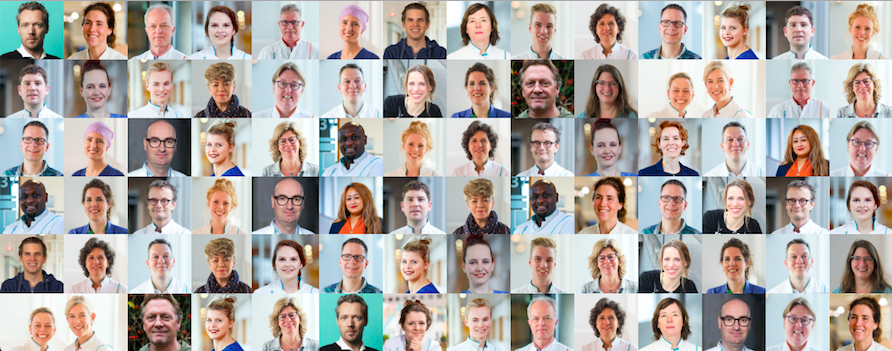12 Early Stage Researcher Positions (PhD students) in the Marie Skłodowska-Curie Innovative Training Network SkinTERM – Skin Tissue Engineering and Regenerative Medicine
12 Early Stage Researcher Positions (PhD students) in the Marie Skłodowska-Curie Innovative Training Network SkinTERM – Skin Tissue Engineering and Regenerative Medicine
You cannot apply for this job anymore (deadline was 20 Dec 2020).
Browse the current job offers or choose an item in the top navigation above.
Job description
SkinTERM stands for Skin Tissue Engineering and Regenerative Medicine and aims to convert the normal mode of skin repair into skin regeneration by delivering excellently and multidisciplinary trained scientists able to take this research area to the next level. Today’s standard treatment of skin burns and large trauma is transplantation of autologous split-thickness skin. This carries a number of serious drawbacks, including pain, mobility-limiting contractures and disfiguring scars. SkinTERM aims to address wound healing in a completely different way, recapitulating regeneration rather than repair. Skin organogenesis will be induced by key elements taken from the extracellular matrix of foetal skin and the skin of species that exhibit no scarring in the regeneration process, and by employing (stem) cells from relevant cellular origins.
The project aims to create a new generation of entrepreneurial, multidisciplinary and intersectorially trained scientists with excellent career prospects in either academia, industry or government. Early stage researchers trained in this programme will be able to drive this research area further towards clinical translation in Europe.
More information on SkinTERM partners and individual ESR projects can be found at www.SkinTERM.eu.
Individual Research Projects
- ESR 1: Construction and evaluation of informative scaffolds for scarless skin regeneration
The Netherlands - ESR 2: Identification and application of specific elastin hydrolysates for scarless skin regeneration
The Netherlands - ESR 3: Examination of cellular infiltration and microenvironmental factors involved in scar-less healing/regeneration in Acomys (spiny mouse) compared to ordinary mouse
Portugal - ESR 4: Examination of factors that promote the differentiation of mesenchymal cells to scar-free fibroblasts
The Netherlands - ESR 5: Development of a dermal tissue based authentic collagen matrix for medical application (Authentic Tissue Template)
Germany - ESR 6: Development and application of histology-directed proteomics of extracellular matrix proteins associated with scarless skin regeneration
Germany - ESR 7: Studying the cell lineage-specific mechanisms accountable for scarless skin regeneration
Germany - ESR 8: Isolation and propagation of sweat gland stem cells for bioengineered ‘sweatable’ skin
Germany - ESR 9: Incorporation of hair follicle proto-follicles in skin constructs and study of their influence on skin structure and behaviour
United Kingdom - ESR 10: Role of macrophages on vascularisation and repair/regeneration of bio-engineered human skin
Switzerland - ESR 11: Role of innervation on prevascularisation and regeneration in bioengineered human skin
Switzerland - ESR 12: Translation of research grade (bench) manufacturing process into an automated GMP process for first-in-human clinical trials
Switzerland
Specifications
- Nijmegen View on Google Maps
Requirements
Please ensure that you fulfil the following eligibility criteria for ESR positions in H2020 MSCA-ITNs, as ineligible candidates cannot be considered:
- The candidate must not have resided or carried out his/her main activity (e.g. work, studies, etc.) in the country of the host institution of interest (see individual project descriptions) for more than 12 months in the 3 years immediately before the recruitment date.
- The candidate must hold a Master’s degree, be in the first four years of his/her research career and not have a doctoral degree.
Furthermore, the candidate is expected to develop into an independent researcher and is:
- A team player able to work collaboratively in a multidisciplinary consortium.
- Able to work independently and well-structured.
- Proficient in written and spoken English.
- Willing to move to the country of the host institution of interest and work for a prolonged period abroad as part of the planned secondments (see individual project descriptions).
Conditions of employment
Fixed-term contract: 3 year funding each.
- Enrolment in local PhD training programme.
- Extensive SkinTERM cross-sectorial training programme including soft skill development and specialist techniques.
- Contract of 36 months at one of the host institutions.
- Attractive salary including a living allowance, a mobility allowance and, if applicable, a family allowance as specified in the Horizon 2020 Marie Skłodowska-Curie actions Work Programme 2018-2020.
Starting date: Successful applicants are expected to start on March 1, 2021.
Employer
- ESR 1: Construction and evaluation of informative scaffolds for scarless skin regeneration
The Netherlands - ESR 2: Identification and application of specific elastin hydrolysates for scarless skin regeneration
The Netherlands - ESR 3: Examination of cellular infiltration and microenvironmental factors involved in scar-less healing/regeneration in Acomys (spiny mouse) compared to ordinary mouse
Portugal - ESR 4: Examination of factors that promote the differentiation of mesenchymal cells to scar-free fibroblasts
The Netherlands - ESR 5: Development of a dermal tissue based authentic collagen matrix for medical application (Authentic Tissue Template)
Germany - ESR 6: Development and application of histology-directed proteomics of extracellular matrix proteins associated with scarless skin regeneration
Germany - ESR 7: Studying the cell lineage-specific mechanisms accountable for scarless skin regeneration
Germany - ESR 8: Isolation and propagation of sweat gland stem cells for bioengineered ‘sweatable’ skin
Germany - ESR 9: Incorporation of hair follicle proto-follicles in skin constructs and study of their influence on skin structure and behaviour
United Kingdom - ESR 10: Role of macrophages on vascularisation and repair/regeneration of bio-engineered human skin
Switzerland - ESR 11: Role of innervation on prevascularisation and regeneration in bioengineered human skin
Switzerland - ESR 12: Translation of research grade (bench) manufacturing process into an automated GMP process for first-in-human clinical trials
Switzerland
Specifications
- PhD
- Health
- University graduate
:fill(white)/logos/umcr-en-wide.png)
